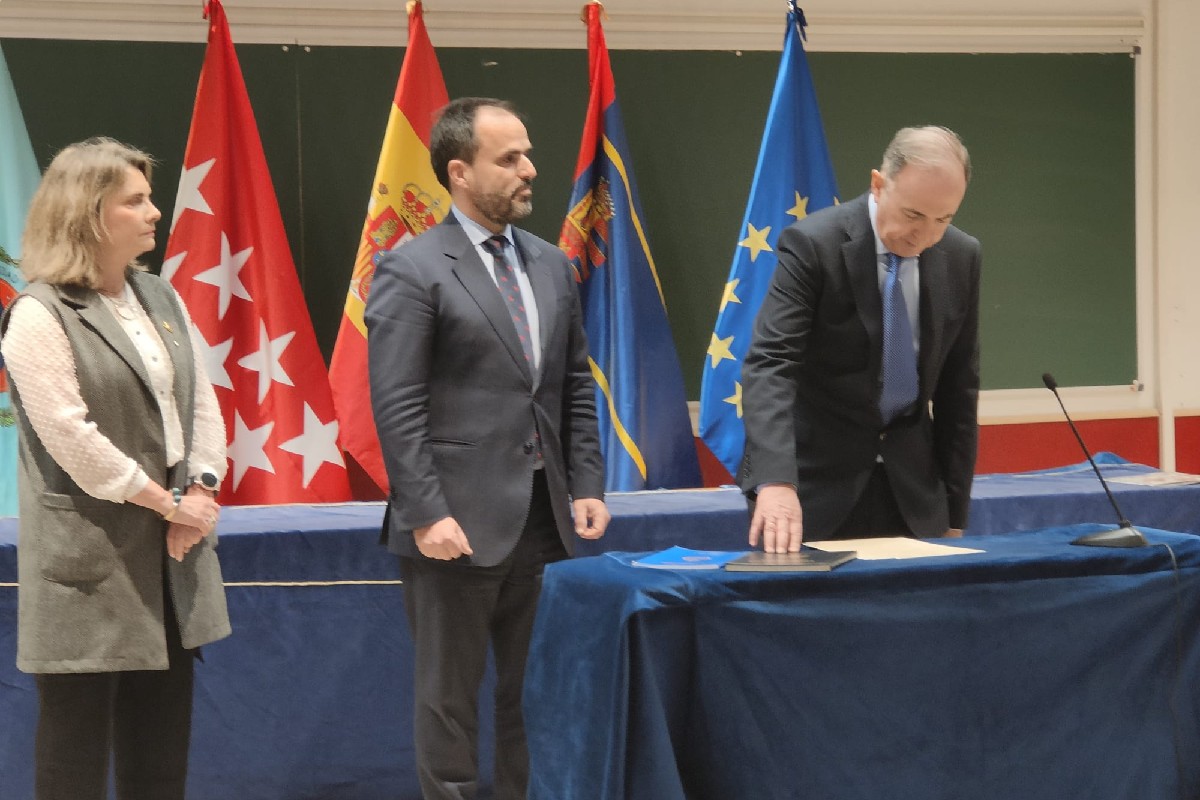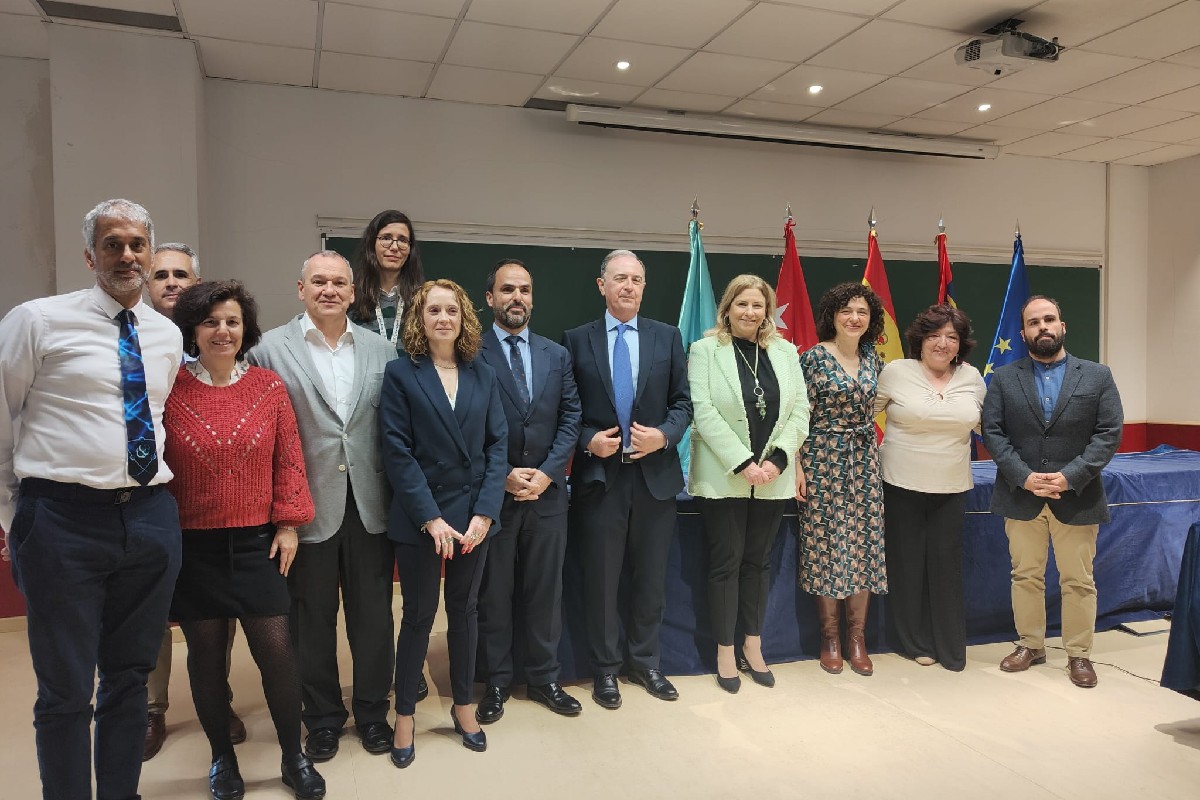David Viera
Today, March 15, the Móstoles campus of the URJC hosted the inauguration of Alejandro Ureña as director of the ESCET. The event was attended by members of the University Government Team, deans of the different faculties and schools, as well as students and staff belonging to the university community.
After the opening of the event by Javier Ramos, rector of the URJC, and Lourdes Meléndez, general secretary, Alejandro Ureña spoke, and thanked the attendees for their presence. Ureña, in an emotional speech, highlighted the pride he feels in continuing to assume the responsibility of the position, stating that “it is not easy to think that after 8 years he can continue contributing.”
Following that, Ureña wanted to point out the commitment of the ESCET to represent the values of the public university and the work of all the professionals who belong to the school to improve day by day. “The day our school fails to make decisions under the sign of the agreement, I will no longer be here,” says the director, pointing out that it is the only condition to continue leading the ESCET. To conclude, Ureña has positively listed the tasks of the ESCET, such as training, research or internationalization, among other competencies.

“To see which faculty is better, we have a canoe competition”
After Ureña's speech, the rector, Javier Ramos, took the floor and joked about holding a canoeing competition in Aranjuez (emulating the one in Cambridge). against Oxford) between the different faculties as a scientific method to know which is the best. After this nice intervention, the rector has recognized the work of the director in charge of the ESCET: “Only a few professionals decide to sacrifice their scientific career or their growth as a researcher to give something to an institution like the URJC, and that is called commitment” .
In turn, the rector has valued Ureña's social commitment, apart from highlighting his virtues, such as his sense of justice, his generosity and his scientific and analytical capacity. After this dedication, Javier Ramos invited attendees to reflect on the different challenges that society faces, such as climate change or sustainability, stating that “research and teaching will continue to provide us with tools and solutions to these challenges.” problems, having the power to improve the quality of people.”




